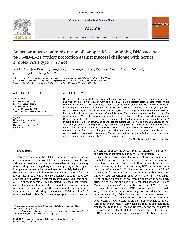摘要
Herpes stromal keratitis (HSK) is a chronic inflammatory process caused by the infection of herpes simplex virus type 1 (HSV-1). Development of a HSV-1 vaccine is a priority because these infections are common and cannot be well prevented. It appears that the potential of nanocarriers in DNA vaccination will be required to augment the immune response to DNA vaccines. Therefore, in the study, nanoparticles Fe(3)O(4) coated with glutamic acid, DNA vaccine pRSC-gD-IL-21 and polyethylenimine were prepared and immunized in the mice by ocular mucosal administration. The immune responses and protection efficiency against HSV-1 challenge were also tested. The results showed that the nanoparticles containing DNA vaccine pRSC-gD-IL-21 induced mice to generate higher levels of specific neutralizing antibody, sIgA in tears, and IFN-gamma, IL-4 in serum, and to enhance the cytotoxicities of NK cells and splenocytes as well as splenocyte proliferative response to glycoprotein D compared with those of the control mice. More importantly, the mice immunized with the experimental vaccine showed less HSK degree than that of the control mice after HSV-1 challenge of the murine ocular mucosa. In conclusion, an ocular mucosal administration of nanoparticles containing DNA vaccine confers strong specific immune responses and effective inhibition of HSK in a HSV-1 infected murine model.
- 出版日期2011-2-4
- 单位东南大学
